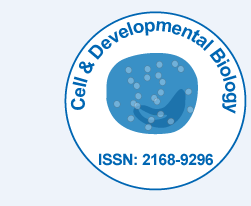
Cell & Developmental Biology
Open Access
ISSN: 2168-9296

ISSN: 2168-9296
PJ Higgins
Interstitial fibrosis is an end-stage pathophysiological feature of several clinically-important diseases involving the pulmonary, hepatorenal and cardiovascular systems and a common response to chronic injury, non-resolving inflammation or long-standing metabolic disease. Increased deposition of extracellular matrix (e.g., fibronectin, collagen), produced by persistently activated myofibroblasts, and attenuated matrix degradation results in disease progression. Disruption of normal tissue architecture eventually culminates in organ failure. Matrix turnover, in the context of both normal and abnormal wound repair, is regulated by several factors among which the most prominent ones are members of the transforming growth factor-β (TGF-β) superfamily. TGF-β1 stimulates fibronectin and collagen synthesis/accumulation at the wound site while impacting the extent and locale of plasmin/matrix metalloproteinaseinitiated stromal remodeling. This pericellular proteolytic cascade is highly-dependent on the generation of plasmin by urokinase (uPA) and tissue-type (tPA) plasminogen activators that, in turn, are subject to regulation by plasminogen activator inhibitor-1. In the normal response to injury, PAI-1 titrates the uPA/tPA/plasmin/MMP system to facilitate repair. Under pathologic conditions, excessive levels of PAI-1 at the site of injury suppress proteolytic activity promoting ECM accumulation and development of fibrosis. The continued clarification of mechanisms that control expression of disease-causative factors, such as PAI-1, will likely lead to the development of gene-specific therapies to inhibit the initiation and progression of the fibrotic process as well as to address the more difficult clinical challenge of reversal of established disease.